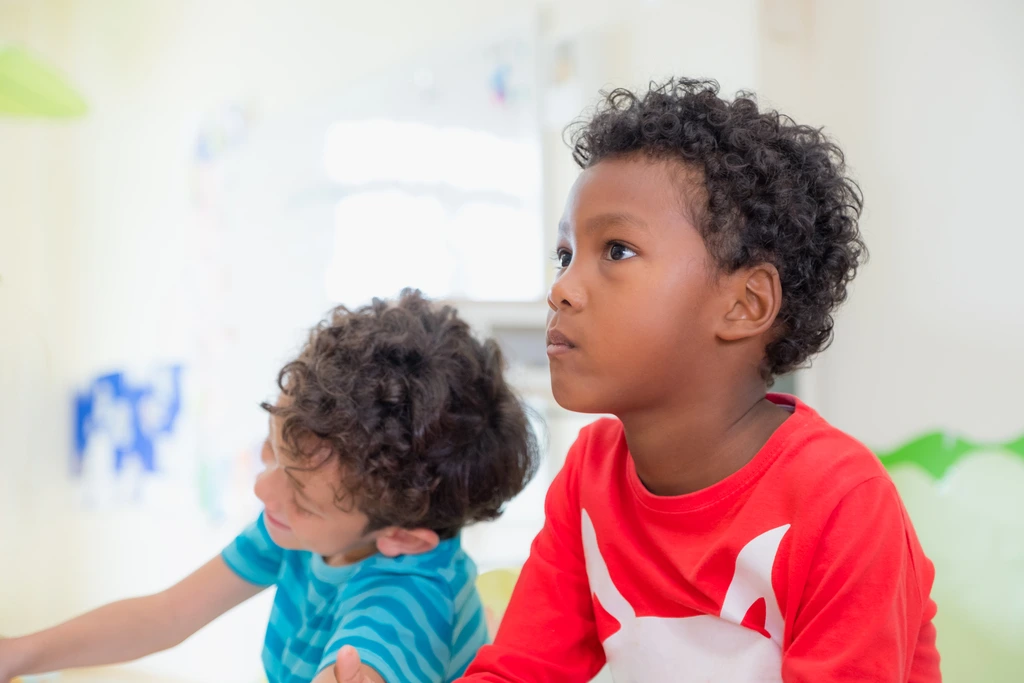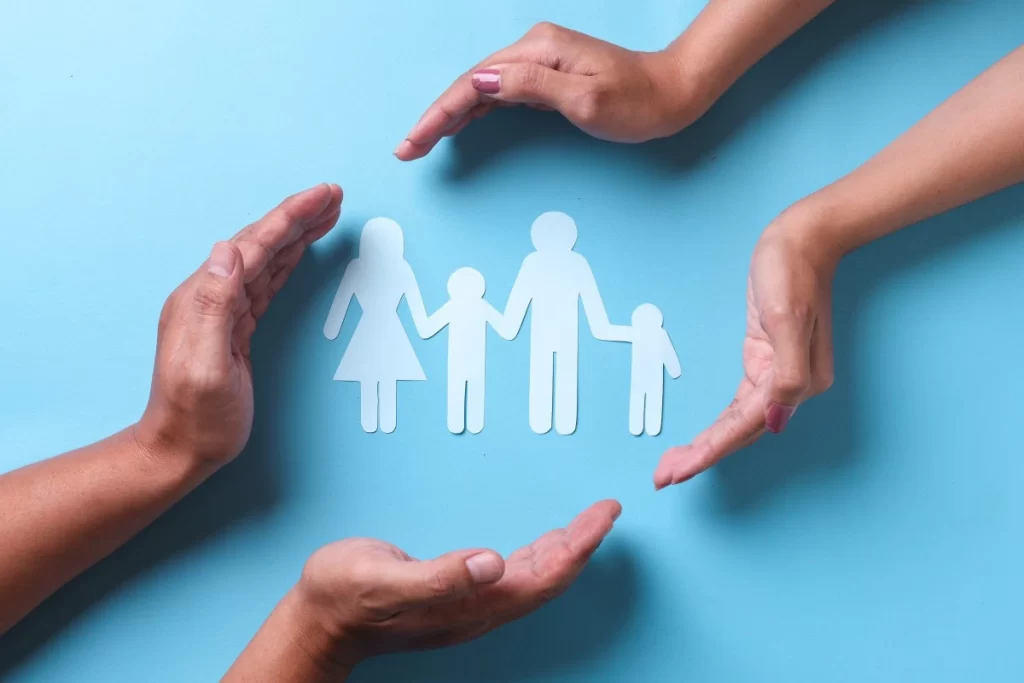Importance of Mental Health in Children and Young People
Good mental health is essential for the development of children and young people. The foundations for emotional, cognitive, and social skills are built during the formative years. Healthy mental health can help children and young individuals learn how to cope with stress or challenging emotions.
When mental health challenges go undetected, they can impact the young individual’s overall well-being and development. Therefore, timely diagnosis is crucial for early intervention and proper support.
Being aware of the mental health difficulties of children and young people helps create a safe and comfortable environment where they can express themselves, improving their well-being.
Common Mental Health Disorders in Children and Young People
By learning more about common mental health difficulties, we can better understand how to help and support children and young people who experience them.

Anxiety Disorders
Anxiety disorder can affect children and young people in various ways. For many young individuals, anxiety can manifest in multiple ways, including:
- Challenges with consistent worry
- Challenges with excessive fear
- Challenges with a sense of unease that affects their daily lives
- Challenges with social interactions
- Challenges with academic performance
Anxiety disorders can be particularly challenging during developmental stages, as children and young people are still developing coping mechanisms. Early identification and proper support are crucial in helping children and young people manage their mental health, build resilience, and thrive in their personal and academic lives.
Depression
Depression can have significant and long-lasting effects on the well-being of children and young people.
This mental health challenge can manifest in various ways, including:
- Feelings of sadness and hopelessness
- Loss of interest in activities that were once enjoyable
- Changes in appetite
- Challenges with sleep (either too much or too little)
- Changes in behaviours and social withdrawal
- Challenges with academic performance
Identifying depression in children and young people is crucial, as early detection and appropriate support can make a significant difference in their recovery. Creating a supportive environment, seeking professional help, and promoting open communication about mental health are essential steps toward effectively managing depression.
Post-Traumatic Stress Disorder (PTSD)
Post-Traumatic Stress Disorder (PTSD) can profoundly impact the mental health of children and young people who have experienced or witnessed a traumatic event.
PTSD in children or young people is characterised by various symptoms, including:
- Challenges with intrusive thoughts or memories of the traumatic event
- Challenges with sleeping (nightmares)
- Intense sadness or fear
- Challenges with flashbacks of the traumatic event
- Challenges with anger
- Avoidance of reminders associated with the trauma
- Changes in mood and cognition
Additionally, children or young people experiencing PTSD might start withdrawing from social activities and have difficulty concentrating, which often leads to challenges with academic performance.
Experiencing PTSD can be immensely challenging for a young person, as it can affect their sense of trust, safety, and ability to build healthy relationships. It’s crucial for parents or caregivers to recognise the signs and symptoms of this mental health concern and provide support and early intervention.
Obsessive-Compulsive Disorder (OCD)
Obsessive-Compulsive Disorder (OCD) is a mental health condition that can cause immense distress and affect the mental health of children and young people. This mental health concern is characterised by challenges with intrusive thoughts (obsessions) and repetitive behaviours or mental acts (compulsions) that individuals perform to get a sense of relief.
In children and young adults, OCD can manifest in various ways, including:
- Excessive handwashing
- Compulsive counting
- Intrusive thoughts
- Repeating words verbally or mentally
- Checking
- Arranging objects in specific ways
These compulsions can be time-consuming and interfere with schoolwork, social interactions, and overall functioning.
Treatment options include cognitive-behavioural therapy (CBT), medication, and support from mental health professionals, which can help individuals manage their symptoms, reduce anxiety, and regain control over their lives.

Signs and Symptoms of Mental Health Issues in Children and Young People
Recognising the signs and symptoms of mental health concerns in children and young people is essential for early diagnosis and treatment. Each young person may experience mental health conditions in different ways. However, there are some signs and symptoms that you can look out for when having concerns over the mental well-being of a young person.
Behavioural Indicators
Changes in behaviour, such as sudden withdrawal from social activities or events, isolation from friends and family, or avoiding activities they once enjoyed, can be behavioural signs of an underlying mental health condition.
Other behavioural signs and symptoms include:
- Frequent changes in mood
- Unusual increased aggression
- Excessive sleeping
- Insomnia
- Taking part in risky or dangerous behaviours
- Loss of interest in school or hobbies
- Excessive tearfulness
It’s important to remember that these indicators should be considered in the context of a child’s overall functioning and any significant changes from their typical behaviour.
Emotional Indicators
One common emotional indicator is a persistent and intense display of negative emotions, such as sadness, anger, or anxiety.
Children and young people experiencing mental health challenges may also experience the following:
- Challenges with regulating emotions
- Challenges with emotional sensitivity
- Challenges with feelings of hopelessness
- Challenges with anxiety
- Challenges with low self-esteem
- Frequent changes in mood
It’s important to create a safe and supportive environment where children and young people feel comfortable expressing their emotions and seeking professional help when needed. Early intervention and appropriate mental health support can help address emotional indicators and promote positive mental well-being.
Physical Indicators
The behavioural and emotional aspects are mostly discussed when referring to mental health challenges. However, mental health concerns can also manifest in physical ways.
One physical indicator is changes in sleep patterns. Children and young people experiencing mental health challenges may have difficulty falling asleep, staying asleep, or experiencing frequent nightmares. On the other hand, they may also exhibit excessive sleepiness, fatigue, or a desire to sleep more than usual.
Other physical signs and symptoms of mental health challenges include:
- Abrupt weight loss or weight gain
- Persistent headaches, stomach aches or other unexplained physical pain
- Restlessness
- Moving or speaking slower
Factors Influencing Children’s Mental Health
Mental health conditions can be caused by various factors. What’s more, specific factors can interact with each other, influencing the mental well-being of young minds. Hence, it’s crucial to better understand these factors when supporting young people’s mental health.
Biological Factors
Genetics might predispose certain mental health challenges such as anxiety, depression, or OCD. Although professionals haven’t identified a specific gene that causes these mental health concerns, a family history of mental health issues can increase the likelihood of young individuals developing them as well.

Environmental Factors
Schools can immensely impact the mental well-being of young individuals. Stress related to schoolwork, bullying, and social exclusion can all lead to the development of certain mental health challenges.
Additionally, the family environment plays a vital role in the overall well-being of young people. When children experience parental neglect, abuse, or excessive pressure, they’re more likely to develop mental health challenges. What’s more, socio-economic status and access (or lack of) to certain resources can impact the mental well-being of children.
Lastly, exposure to inappropriate content online, pressure from social media and excessive screen time can influence the mental health of young individuals as well.
Promotion of Positive Mental Health in Children and Young People
It’s essential to start educating children about mental health in an age-appropriate manner. This includes teaching them that mental health is just as crucial as physical health and that discussing their feelings and emotions is healthy behaviour.
What’s more, it’s crucial to encourage open dialogues about emotions, thoughts, and mental health needs in a safe and non-judgmental space. Validating their experiences and providing a safe and comfortable environment is essential for the overall well-being of young people.
Reducing Stigma and Raising Awareness
Minimising the stigma surrounding mental health can be done by continuously promoting acceptance, empathy, and understanding. Teaching young individuals that seeking help for mental health is a sign of strength, not weakness, is crucial. Additionally, encouraging them to be supportive and compassionate towards others who might face challenges with their mental health is important.
By normalising mental health discussions, children will feel more comfortable seeking mental health treatment and supporting their peers.

The Significance of Early Intervention and Support for Children’s Mental Health
Early intervention and support for children and young individuals experiencing mental health challenges is essential.
When prolonged – mental health challenges can result in further health concerns and complications. Therefore, addressing mental health difficulties in the early stages can provide young individuals with the right tools and support to navigate through their challenges.
Mental Health Support for Children and Young People with Nurseline Community Services
At Nurseline Community Services, our utmost priority is addressing the unique needs of each individual. We are dedicated to delivering outcome-based solutions that focus on fostering independence and well-being. Our primary goal is to empower individuals with mental health challenges to lead fulfilling lives within their homes and communities.
We offer unparalleled services for individuals requiring mental health support through utilising positive behaviour support (PBS), creating personalised complex care plans, and specialising in crisis de-escalation.
Our team of trained healthcare professionals deliver complex care with precision and compassion. We provide comprehensive support to individuals with complex care needs, ensuring their safety, security, and the development of their self-confidence in managing their own lives.
If your loved one requires mental health support, we encourage you to reach out to one of our offices located in Bristol, Birmingham, or Gloucester today.





